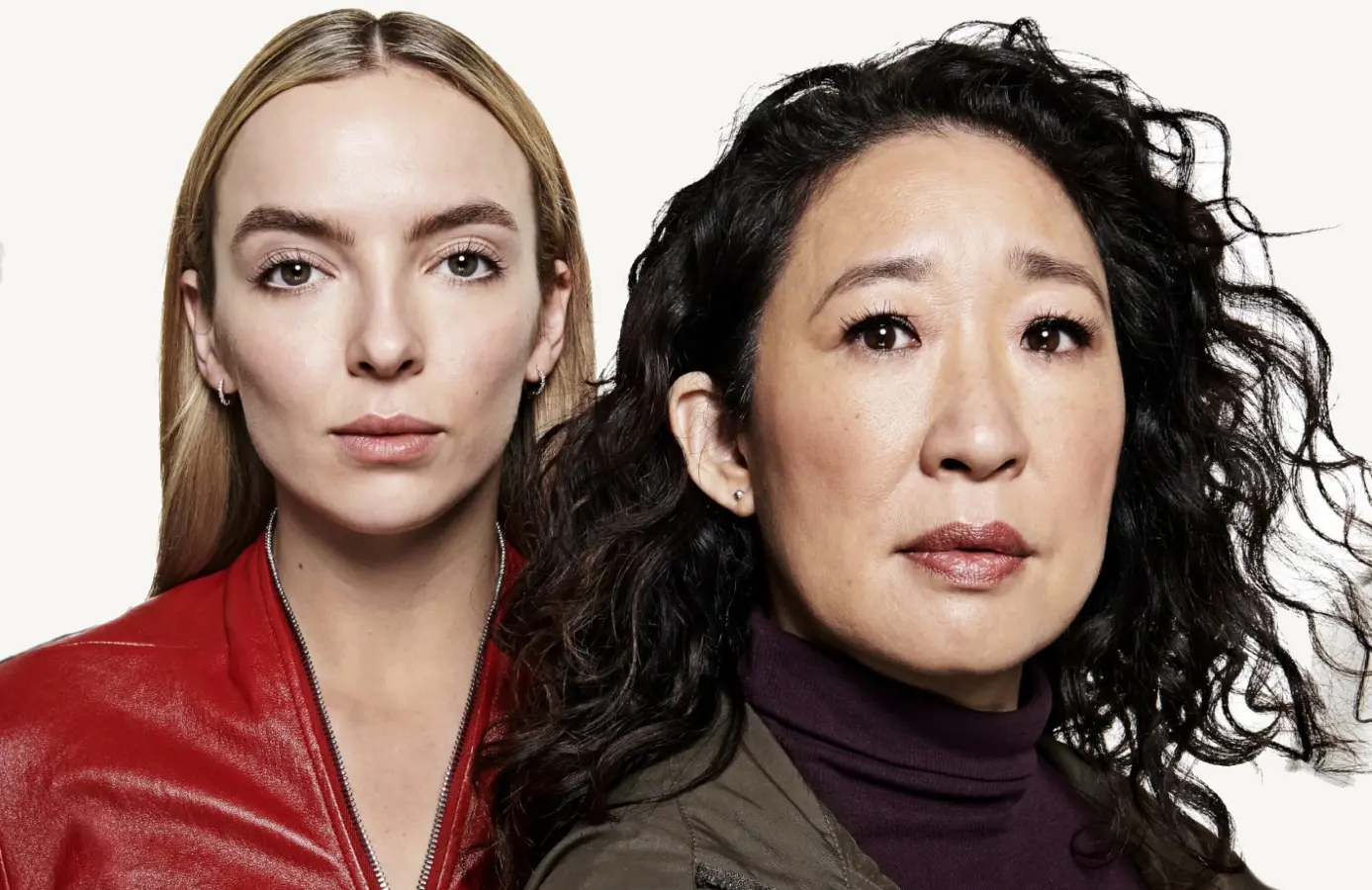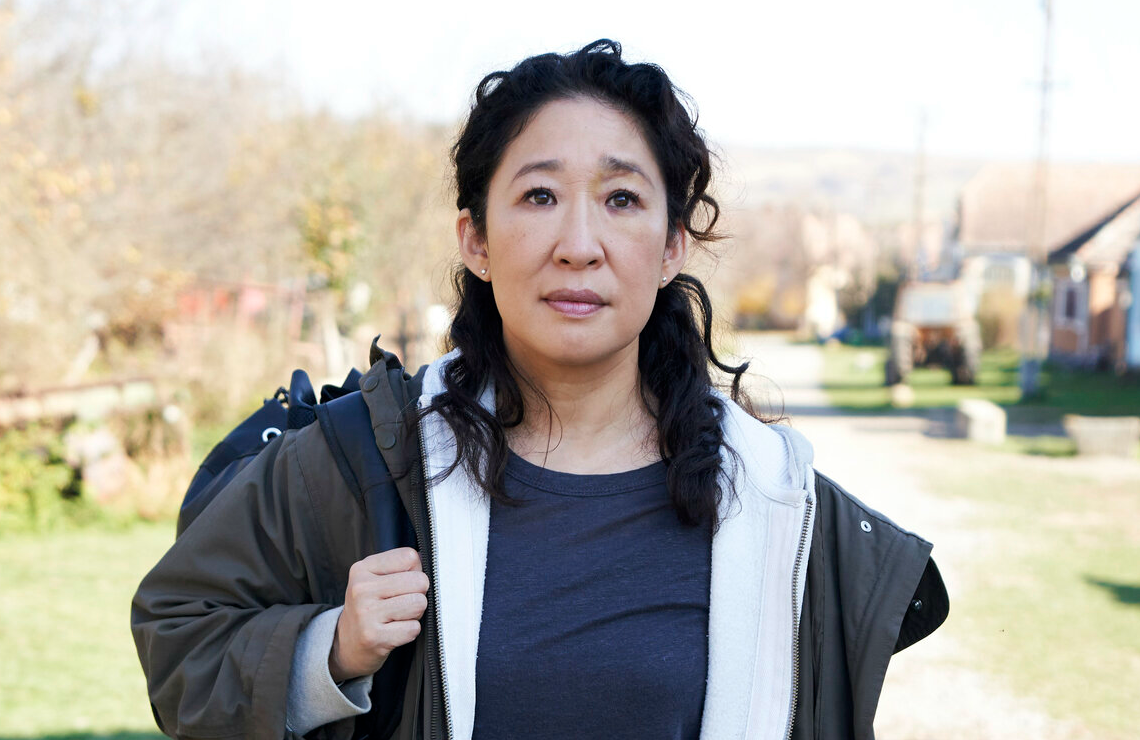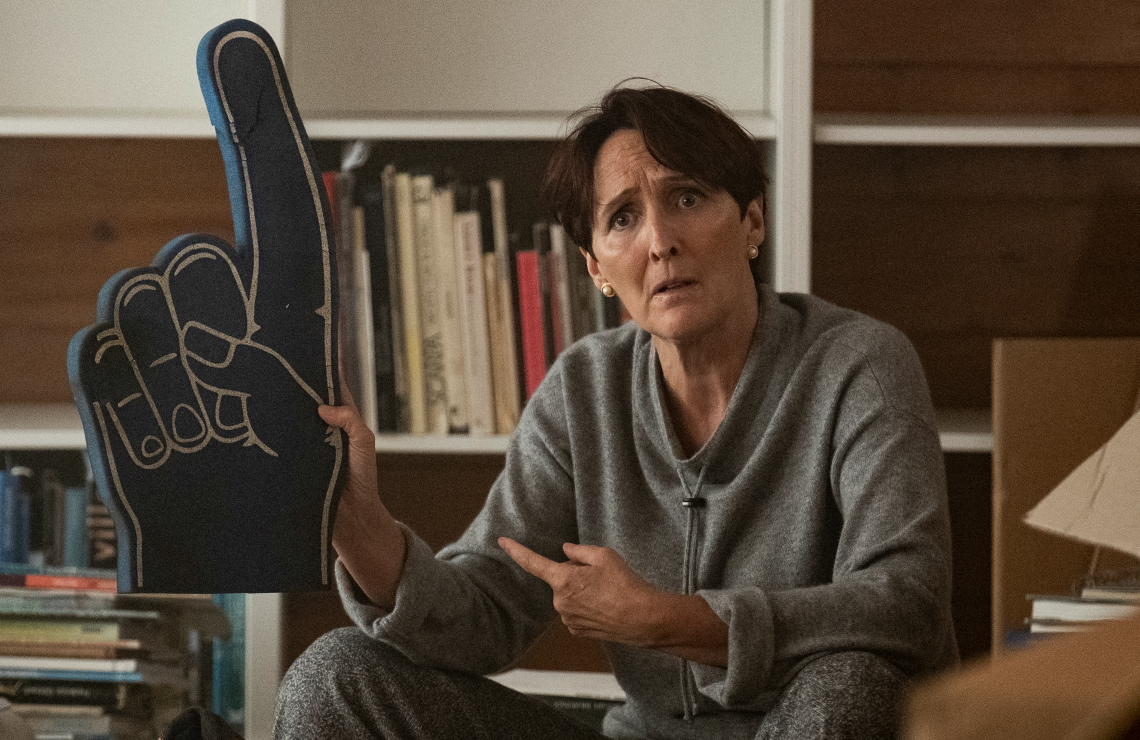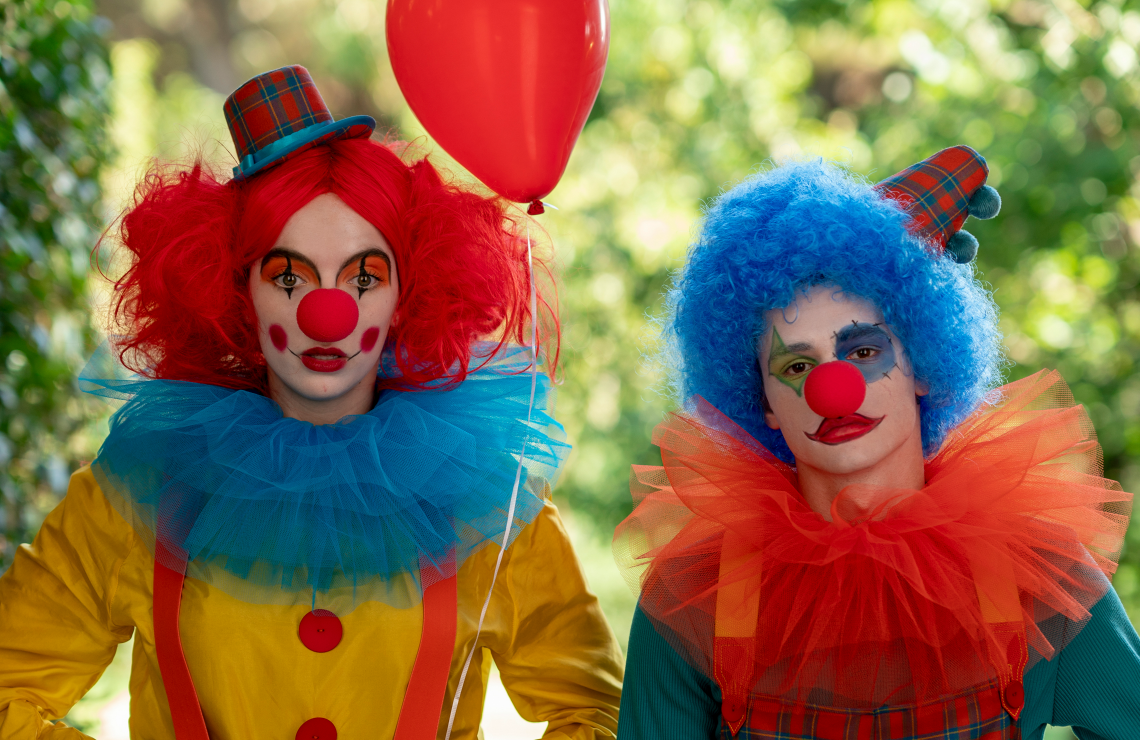Can Killing Eve Bounce Back From Its Sophomore Slump?
-
 Jodie Comer and Sandra Oh in Killing Eve. (BBC America)
Jodie Comer and Sandra Oh in Killing Eve. (BBC America)In many ways, the second season of Killing Eve did live up to the success of its first. For starters, since every episode aired simultaneously on both BBC America and AMC — as opposed to just the former — the series experienced notable ratings growth. It maintained a strong awards season presence as well, with Jodie Comer — the actress playing Villanelle — scoring an Emmy win for her work.
Those are major accomplishments considering the standards set by the show's freshman season, which was a rare critical and commercial success from the get-go. However, the critical support for Killing Eve began to dwindle the longer its second season went on, culminating with harsh reviews for the finale. By the time everything was said and done, the general critical consensus was that the show’s sophomore run was simply lacking. But why?

Picking up exactly where the first season left off — with Villanelle vanishing into thin air just moments after being stabbed by Eve — Killing Eve’s second season got off to a promising start. Eve’s struggle with her violent actions provided some emotional resonance, while Villanelle remained as vicious and oddly childlike as in year one. But it became clear somewhere around the season's halfway mark that Killing Eve had lost some of its focus.
That was a problem for the show since, as is the case with most of the work of show creator Phoebe Waller-Bridge (Fleabag), Killing Eve’s first season was a masterclass in propulsive, episodic storytelling. At no point throughout those first eight episodes did Killing Eve feel like it was drawing things out or spinning its wheels, which gave the series a satisfying brisk pace. Each of the season’s subplots, including Villanelle’s hunt for Frank (Darren Boyd) and her infiltration of the Russian prison, felt like they lasted as long as they should before reaching their inevitable conclusions. Like many great seasons of television, Season 1 managed to go off on multiple episode-of-the-week tangents without slowing the momentum of its central cat-and-mouse narrative. Wherever Villanelle went, Eve was sure to follow, and vice versa.
The series consistently took turns that were equal parts absurd (Villanelle and Eve’s “dinner date”), thrilling (their backroad staredown at the end of episode 4), and sometimes even genuinely terrifying (Bill’s unfortunate nightclub demise). But more than anything, the show was unpredictable, which made it all the more addicting.

The same can not be said for Season 2, which ditched the cat-and-mouse narrative by bringing Eve and Villanelle together for most of its second half, trying to adopt more of a slow burn approach to its storytelling, with varying degrees of success. On one hand, Villanelle’s season-long manipulations paid off in a satisfying, unexpected way when she forced Eve to kill Raymond (Adrian Scarborough). On the other hand, the season also dedicated an awful lot of time to storylines that felt strangely inconsequential, like Niko’s relationship with Gemma (Emma Pierson), Eve’s fling with Hugo (Edward Bluemel), and basically everything having to do with Aaron Peel (Henry Lloyd-Hughes). Each of those subplots ended in less than satisfying ways, giving the season a meandering feel.
The narrative problems culminated in the season's final moments when, in an inversion of the Season 1 finale, Villanelle shoots Eve and leaves her for dead. It was a moment that was clearly meant to invoke the same feelings as the first finale, but missed the mark. Eve’s stabbing of Villanelle not only came out of nowhere, but also revealed interesting new layers of the character. Villanelle’s shooting of Eve achieved none of that. It was easy to see coming, and failed to reveal anything we didn’t already know. Of course Eve wouldn’t want to live a life on the run with Villanelle, and of course Villanelle would hurt Eve for turning her down.
Most importantly though, the season’s lackluster conclusion left Killing Eve in a strange, unnecessarily ambiguous place. Where the unexpected burst of violence that concluded its first season provided Killing Eve with some exciting momentum for the following season. Season 2’s final moments did the opposite. The final shot of the season, which saw Eve bleeding out on the ground while Villanelle coldly walked away, felt gimmicky, mechanical, and inorganic.
That being said, there are some encouraging signs that the third season of Killing Eve will see the series make a course correction.

First it should be noted that Killing Eve underwent a major leadership change between its first two seasons, with Phoebe Waller-Bridge passing the show’s lead writing duties over to Emerald Fennell (Promising Young Woman, Drifters), which may explain the creative inconsistencies between the seasons. Killing Eve will be continuing that tradition this year, with Suzanne Heathcote (Fear the Walking Dead) helming the show’s third season. That behind-the-scenes change means Killing Eve has a chance to transition back from the slower, darker qualities of Fennell’s tenure, to something closer to the fun, fast-paced nature of the Waller-Bridge-helmed era.
Additionally, despite the Season 2 finale failing to provide a satisfying conclusion to its own narrative, the fracture between Eve and Villanelle leaves plenty of room for a Season 3 reset that could see the two characters organically returning to the roles they inhabited in the Season 1 (more or less). Judging by the trailers, this seems to be the case. Even Villanelle’s clown getup (pictured above) seems more in line with her Season 1 playfulness than anything she did in the sophomore season. Both of those things are undoubtedly good signs.
It's important to remember that Killing Eve’s initial success wasn’t unearned. Its first season was widely recognized as one of the best things to air on TV in 2018, and for good reason. The series wasn't noteworthy solely because it resulted in Sandra Oh receiving some overdue critical recognition, nor for catapulting the relatively unknown Jodie Comer into breakout stardom, but rather for being a refreshingly fun piece of entertainment in and of itself. It offered a complex, female-driven take on a traditionally male-dominated genre tale, and gleefully spit in the face of the self-important seriousness that plagues so many of the Peak TV era's so-called “prestige” dramas.
It's also encouraging that BBC America remains as confident as ever in the series, with the network recently moving the season premiere up two weeks from its original release date. That means that with all the quarantining going on around the world right now, Killing Eve could potentially have even more eyes on it than ever before. We can only hope the show manages to capitalize on that opportunity by returning with the same level of focus that hooked so many viewers in the first place.
Season 3 of Killing Eve premieres on BBC America and AMC this Sunday, April 12th at 9:00 PM ET.
People are talking about Killing Eve in our forums. Join the conversation.
Alex Welch has written about television and film for TV by the Numbers, IGN, The Berrics, Paste Magazine, Screen Rant and GeekNation. Follow him on Twitter @alexrwelch.
TOPICS: Killing Eve, AMC, BBC America, Emerald Fennell, Jodie Comer, Phoebe Waller-Bridge, Sandra Oh, Suzanne Heathcote